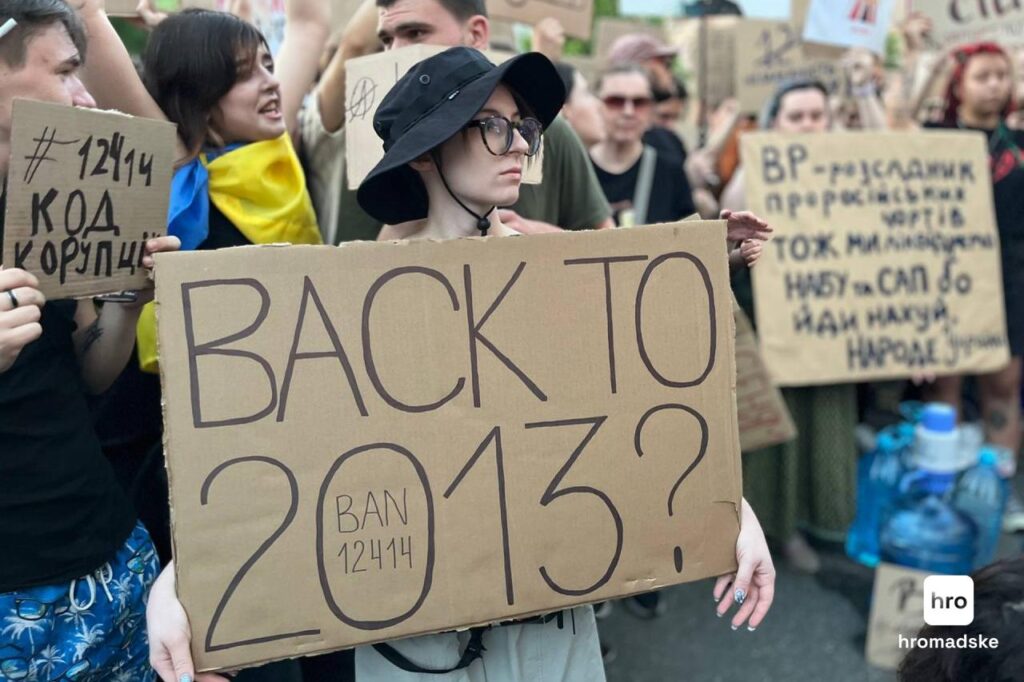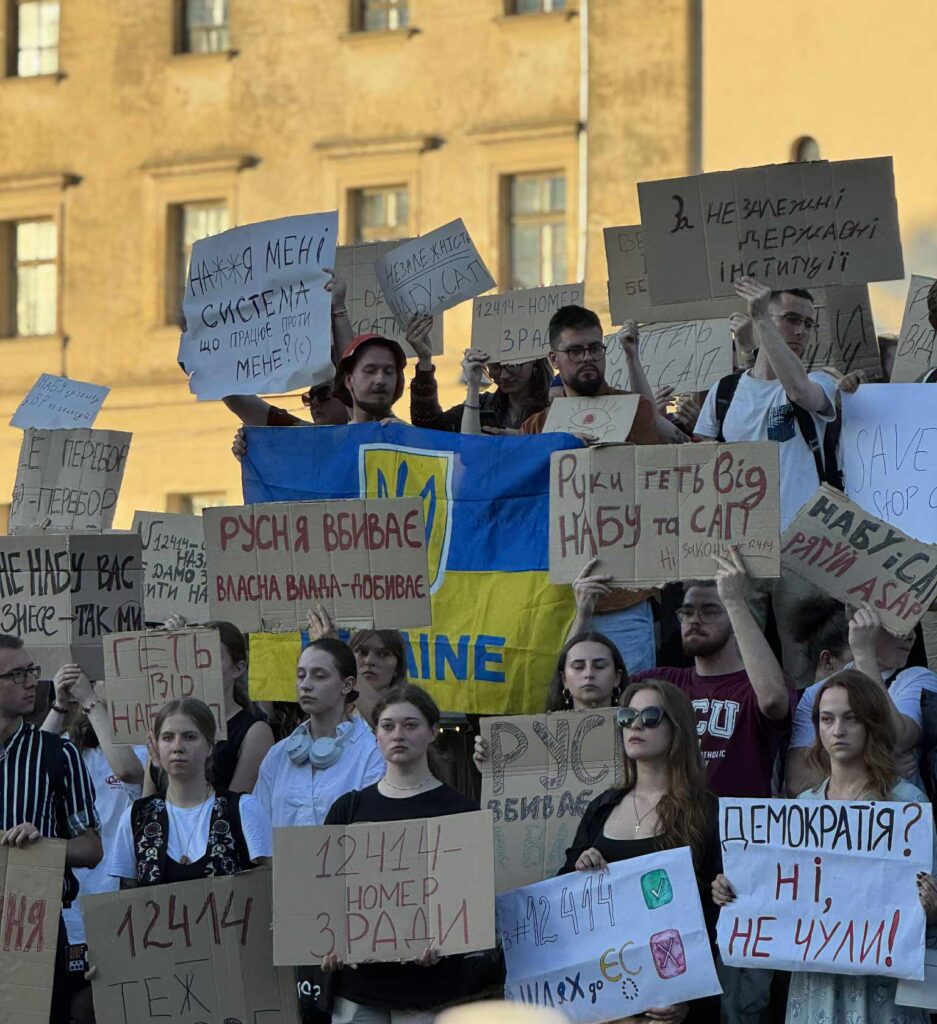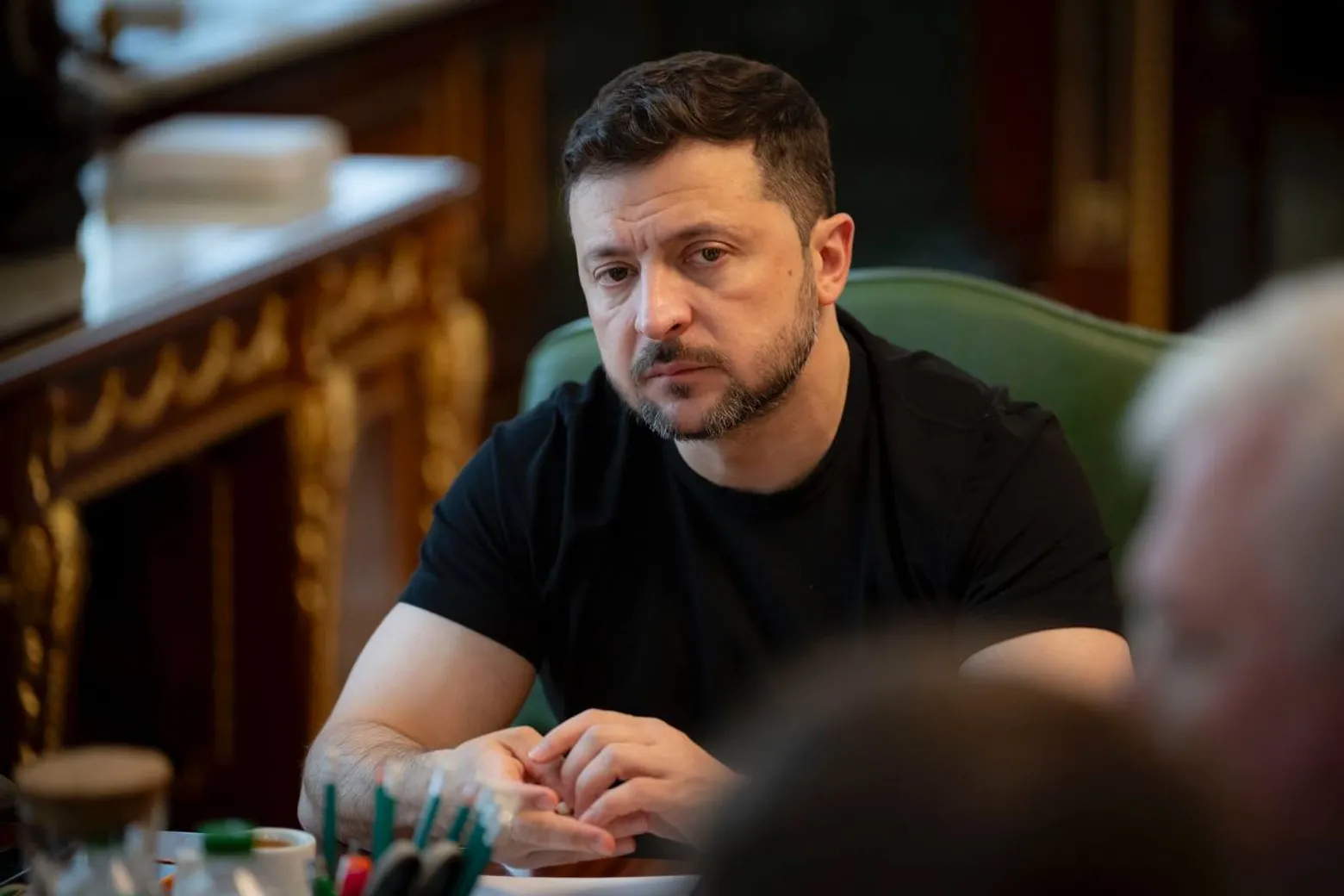President Volodymyr Zelensky has approved a new draft law aimed at restoring the independence of Ukraine’s anti-corruption institutions, following days of nationwide protests, international criticism, and revelations of a Russian spy network operating within law enforcement agencies.
The new draft bill, submitted to Parliament on Thursday, is intended to replace the widely criticized Law No. 12414, which shifted control over key anti-corruption bodies—the National Anti-Corruption Bureau (NABU) and the Specialized Anti-Corruption Prosecutor’s Office (SAPO)—to the Prosecutor General’s Office.
“We need real tools, full independence for NABU and SAPO, and zero Russian influence,” Zelenskyy stated.
Although the full text of the bill has yet to be published, the president said it would guarantee the independence of anti-corruption institutions and strengthen Ukraine’s justice system during wartime.
Law No. 12414 sparks backlash
Passed on 22 July and signed into law two days later, Law No. 12414 allows the Prosecutor General to reassign investigations, close high-level cases, and override SAPO’s jurisdiction. Critics say it effectively places independent bodies under executive control, undermining judicial reform and Ukraine’s commitments to the EU.
Even some lawmakers from Zelenskyy’s own Servant of the People party expressed alarm. MP Anastasia Radina, head of the anti-corruption committee, warned the law could “destroy the country’s anti-corruption infrastructure.”
Protests and international alarm
Thousands of Ukrainians took to the streets in Kyiv, Lviv, and Dnipro, demanding the repeal of the law. The European Commission voiced concern, warning the law threatens Ukraine’s progress on transparency and could affect future EU assistance.
“These institutions are vital to fighting corruption and maintaining public trust,” said EU spokesperson Guillaume Mercier.

Spy scandal and high-level raids
The crisis escalated when Ukraine’s Security Service (SBU) and State Bureau of Investigations (SBI) uncovered a Russian spy network within anti-corruption and law enforcement bodies.
On 21 July, authorities conducted over 70 raids targeting current and former NABU employees:
- Ruslan Magamedrasulov, a senior detective, was arrested for allegedly leaking classified case materials to Russian intelligence and facilitating illegal exports to Russia.
- Viktor Husarov, a member of NABU’s elite D-2 unit, was charged with treason for allegedly passing sensitive files to Russia’s FSB via former Yanukovych-era official Dmytro Ivantsov. He remains in custody without bail.
- Authorities also issued charges against fugitive ex-MP Fedir Khrystenko, accused of coordinating sabotage efforts within NABU on behalf of the Kremlin.
NABU criticized the raids as excessive and legally questionable, warning that investigators from the SBU and SBI may have accessed confidential materials. Transparency International and G7 ambassadors condemned the actions as pressure on Ukraine’s last independent anti-corruption institution.
Concerns about legitimacy and effectiveness
Despite playing a central role in Ukraine’s reform narrative, anti-corruption bodies have faced longstanding criticism:
- Constitutional challenges: Between 2020 and 2022, the Constitutional Court struck down key provisions related to the formation and leadership of NABU, raising doubts about the legal basis for their operations.
- Limited outcomes: Although these agencies have pursued high-profile investigations, actual convictions—especially of senior officials—remain few.
- Jurisdictional overlap: Conflicts among NABU, SAPO, the National Agency for Corruption Prevention (NACP), and other institutions frequently lead to inefficiency and turf battles.
- Political influence: While these bodies are formally independent, their activities often reflect political dynamics—through control over appointments, budgets, and informal coordination by the Presidential Office or government.
These concerns don’t erase the institutions’ achievements but underscore the urgent need for deeper reform and stronger protections from political interference.

Zelenskyy’s course correction
Zelenskyy’s pivot toward a new legislative solution has been welcomed by NABU and SAPO, who pledged to assist in drafting a law that meets rule-of-law standards and reinforces institutional safeguards.
“We support legal solutions that enhance justice and eliminate legal risks,” NABU stated, also thanking civil society and international partners for ongoing support.
What comes next
Parliament is expected to review the new draft in the coming days. Whether it can undo the political fallout from Law No. 12414—and restore public trust—remains uncertain.
With active espionage threats and high stakes for Ukraine’s EU accession path, the independence and resilience of its anti-corruption architecture face a defining test.




